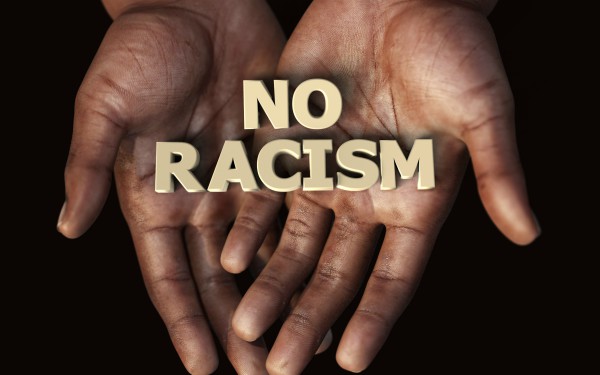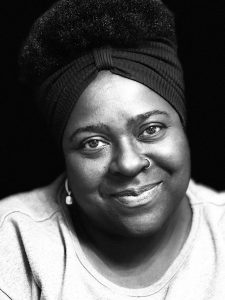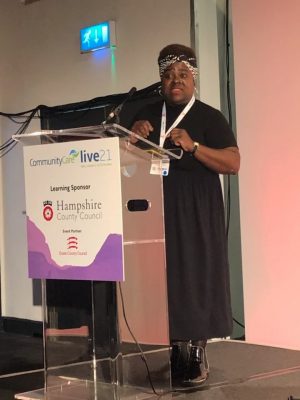
By Millie Kerr
It is uncomfortable to have uncomfortable conversations about race, but we need to sit with this discomfort if we are to effect change. That means challenging our own fears, beliefs and biases to enhance our social work practice, when working with communities, cultures, customs and religions different from our own.
As the only anti-racist lead practitioner in England, it means that I am having uncomfortable conversations on a daily basis in my role at Brighton & Hove City Council. And after a 27-year-plus career in social care, I felt that I had finally received my calling when, in November 2020, I took up the role as anti-racist practice lead at the council.
Fear of difference
I am a registered social worker and have practised as a team manager and children’s services manager in inner city London and the south east of England for local authorities, hospital social work and third/voluntary sector organisations.

Millie Kerr, anti-racist lead practitioner, Brighton & Hove City Council
I have worked predominantly with Black and diverse communities, from differing cultural and religious backgrounds. This work has covered areas such as safeguarding and child protection, neglect, child sexual exploitation and child trafficking, forced marriage, female genital mutilation, child abuse linked to faith or belief, work with asylum-seeking children/young people, domestic abuse, HIV and palliative care.
Some social care professionals lack confidence in, and sometimes fear, working with people from different cultural backgrounds to themselves, particularly people from Black, African, Caribbean and Asian diasporas.
This has been exacerbated by stereotypes, assumptions, labels, and language that social workers use, in their verbal and written communication/reports, which can contain unconscious bias, microaggressions and racist viewpoints. Some of these arise from distorted perspectives and beliefs, which are perpetuated by the media, about Black people, Muslims and asylum seekers, and about their cultures, religions and traditions.
Anti-racist practice role
My anti-racist practice lead role came as a result of Brighton & Hove’s 2019 ‘Being a fair and inclusive council’ report, and the anti-racist project in children’s social work services. Children’s social work services had completed an audit of work with Black and minoritised families, as well as receiving feedback from Black and minoritised staff, and used this to create an anti-racist project to support anti-racist practice. The project has worked with practitioners to develop an anti-racist action plan. In doing so, we aim to challenge racism, improve the experience of Black and minoritised staff, and deliver improved services to Black and minoritised families.
Improve your practice with Black and minoritised children
Millie Kerr is delivering a webinar at Community Care’s first Festival of Learning on meeting the cultural and religious needs of Black and minoritised children and communities, from 2pm-3pm on 31 March.
Register now to book your place for her webinar or others running at the week-long event.
Impact on practice
By building the confidence of practitioners to have uncomfortable conversations about race and racism, and by supporting social workers, managers and leaders to listen and learn from Black families and staff members’ lived experiences, the role is helping to enhance working relationships and understanding.
A big part of my role is to offer social workers and managers case formulation meetings and consultations. The aim is to discuss how social workers can consider progressing their assessments or interventions in a way that considers race, identity and culture, including differing parenting styles, for Black and minoritised families.
This support aids anti-racist social work decision making, including in assessments, kinship care work or care proceedings. It has also proven advantageous to white social workers and managers in giving them a better understanding of how to look at and include the identity needs of Black and minoritised children in foster care, who are placed predominantly with white foster carers.
My role includes improving relationships and building trust between the Black and diverse communities we serve and children’s social care. For example, this has included seeking the support of the Muslim community regarding guidance around cultural and religious norms that are important to them, as well as seeking their support with the recruitment of more Muslim foster carers.

Millie speaking at Community Care Live 2021
Facilitating discussion
I facilitate weekly anti-racist discussion groups that are open to all practitioners from across the service, as well as six-weekly themed sessions, and a monthly session for Black and minoritised staff members. The latter meeting enables Black staff members to talk about their lived experiences in a space they feel comfortable in. It is also a space to offer each other support, as well as allowing mutually agreed issues to be raised with the senior leadership team and anti-racist project board for wider discussion or resolution. A particular area has been around identifying specific training for Black and minoritised staff members that has the potential to aid staff progression.
I also attend supervisions, team meetings and monthly reflective practice group sessions. These give social workers the space to talk about their feelings and critically reflect on anti-racist practice, and the impact this has on them as individuals in a wider system and on their wellbeing.
Training and development
My role involves developing, delivering and co-ordinating training and webinars. These have greatly enhanced social workers’ understanding of the lived experiences of racism. This is achieved through hearing and considering the views of Black dads and developing an understanding of what microaggressions look like, for example.
Through Brighton & Hove’s safeguarding children partnership, I have delivered anti-racist/cultural competence training to multi-agency partners across health, the police and education.
In partnership with the Sussex Family Justice Quality Circle, I have also been instrumental in developing a Family Court Anti-Racist Practice statement. This was recently ratified by the Sussex Family Justice Board as a good practice guide for the family court judiciary, lawyers, barristers and guardians.
Giving staff a voice
To ensure that our anti-racist action plan is not just a document that sits on the shelf, we meet regularly to review it and how we are progressing the specific workstreams. These encompass: the voice of children and families, how we work with families, and staff support. To ensure the board is challenged to address the areas of need, it is chaired by a non-managerial Black or minioritised member of staff.

Image by Melk Hagelslag from Pixabay
The role also includes supporting and facilitating the retention, progression and recruitment of Black staff members within the local authority. For example, mentoring is now available and offered to Black and minoritised staff members and has proved to be beneficial in retaining and developing our present Black staff members.
Many have grown in confidence in their roles and have been enabled to speak up if unhappy. They have applied for courses to assist in their further development and progression, and this has enabled me to consider gaps in support for Black staff members and request specific courses/programmes for Black talent to be considered in our annual training requests. More shadowing opportunities will also be considered for Black and diverse staff members, to enhance, skills, development and staff progression.
We are all learning from each other and realise that anti-racist practice may be a lifelong journey within social work. However, the important thing is to begin that journey and have a vision for what anti-racist social work practice is and could begin to look like.
Will your local authority be the next one to take the leap into anti-racist action?


 Facebook
Facebook X
X LinkedIn
LinkedIn Instagram
Instagram
Great article Millie. So pleased that you have found ‘your calling’ and are able to provide leadership in this much needed area of practice development. Readers if you haven’t had sight of ‘Leading in Colour’ by Meera Spillett of The Staff College I would encourage you to download a free copy. Rosemary Campbell-Stephen’s work on the terminology global majority is another good read.
Thank you very much for sharing these helpful resources! I am a student social worker of African descent and have an interest in people of ethnic minority working in leadership roles within children social work in England.
Thank you again.
Excellent you are so brave keep the work up and please email at equalitiesandjustice@gmail.com.as u need your support thankyou Z
Love your work, it’s about time to tell our story, keep advocating for us. There a lot of black families in work who have been under represented and their needs are not being met as some workers don’t understand the black children cultural needs and their history. We really awareness courses for all social workers who work with black children.
Thank you
Great stuff. I’m really proud that BHCC has started the ball rolling. However, whilst Black and Asian unconscious bias is an incredibly valuable focus point, don’t ignore the other large ethnic communities in the City (gypsies, Jews). Brighton has a real problem in these areas!
Fantastic Millie – a real trailblazer for change and race equality.